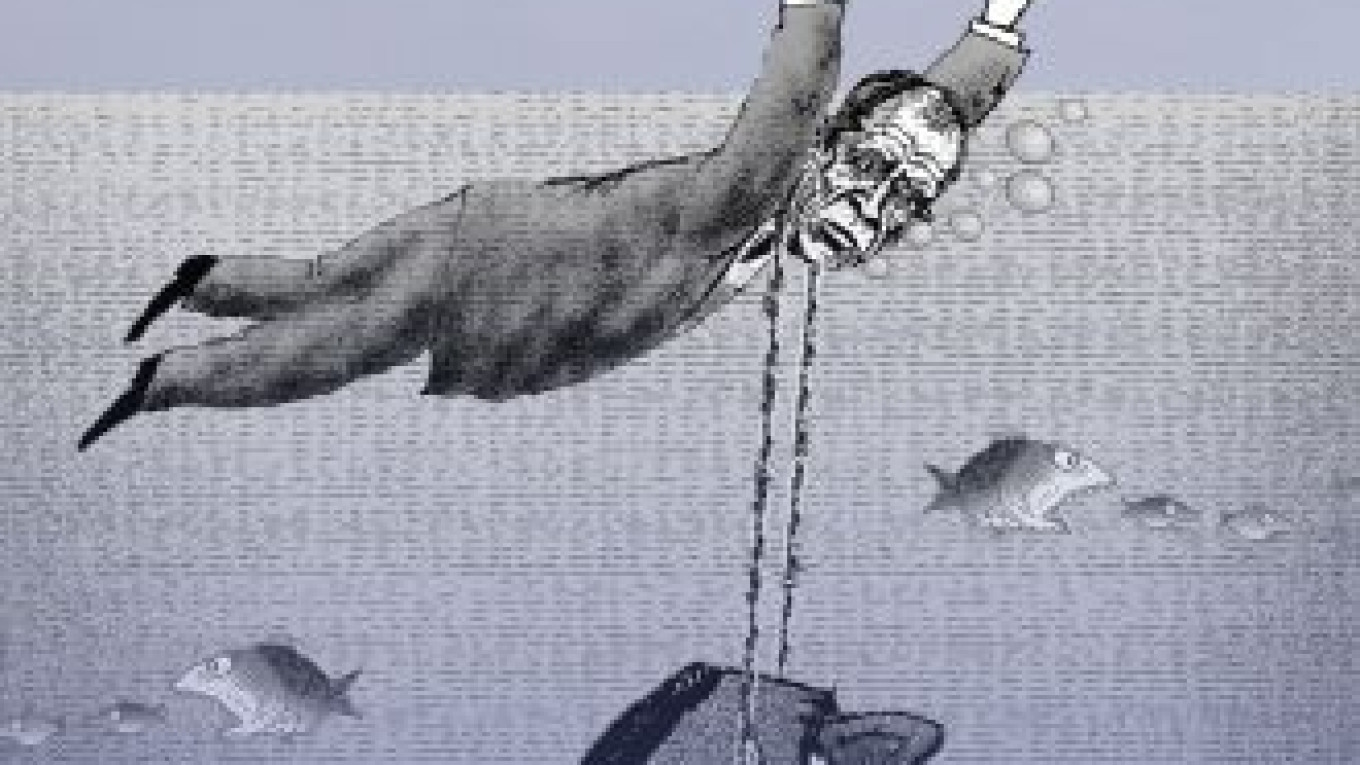The Syrian problem has become a vicious vortex sucking the Russian ship downward into its maw. Foreign Minister Sergei Lavrov last week sent a few subtle signals that the Kremlin might be trying to distance itself from Syrian President Bashar Assad, but to no avail. Assad turns to Russia for support, and the Kremlin involuntarily obliges. Russia has become a captive of the situation that it has created itself.
This became clear immediately after the tragic massacre of civilians in the Syrian village of Houla on May 25 that left about 116 civilians dead, including dozens of children. Lavrov cannot deny the evidence presented by the United Nations that the heinous crime was committed by government forces. At the same time, however, he cannot turn his back on Assad and his regime. His solution was to try to sit on both sides of the fence: recognizing the involvement of government forces in Houla while demanding a full investigation into the role played by rebel forces in the tragedy.
Nobody denies the role that the rebels have played in the Syrian conflict. A civil war is raging in the country, and the opposition openly refers to itself as a militia. The question is not whether the opposition fired first, but how the government's army responded. Is it admissible to retaliate against enemy fire by intentionally bombing civilian neighborhoods and killing innocent women and children simply because that population is sympathetic to the opposition?
As a result, the Foreign Ministry cannot provide any evidence backing up its oft-repeated claim that Moscow is only defending the principles of justice for the Syrian people and that it has not supported the Assad regime against the rebel forces. No sooner does the Foreign Ministry try to position itself as a neutral player cooperating with the UN than another massacre takes place. Assad then appeals to Moscow for support, and the whole cycle begins anew.
Defending Assad had always been part of President Vladimir Putin's anti-Western campaign rhetoric to curry favor with his conservative constituency. Moscow's support for Assad had disastrous results, particularly between Feb. 4, when Russia vetoed the UN draft resolution on Syria put forward by the Arab states, and March 5, when Putin was elected president. During this period of Russian protection, Assad's regime escalated the conflict by bombing major population centers considered to be strongholds of opposition rebels.
In a campaign stunt designed to vex Western governments and win votes at home, Putin had additional weapons delivered to Assad during this period. As a result, by March 5, government forces had decisively broken the backbone of the rebels and began to feel that they had established control in the country.
Assad is obviously incapable of restoring order with anything but heavy guns. There is no hope for a peaceful solution as long as he remains in power. But what will be the outcome of Russia's attempts to whitewash and justify his crimes? How can Russia prove that it is not defending a bloody dictator?
By all indications, the Kremlin does not view events in Syria as a serious crisis and intends to play its Syria card in negotiations with the West in an attempt to wrest concessions on key issues in the U.S.-Russian dialogue, such as missile defense in Europe or a softening of the West's moral and political support for the protest movement in Russia.
Since these types of concessions from Washington are unlikely, this means that Russia will probably continue its reckless course of supporting the Assad regime — until there are a few more massacres like Houla.
Alexander Shumilin is the director of the Center for the Analysis of Middle East Conflicts at the Institute for U.S. and Canadian Studies at the Russian Academy of Sciences.
A Message from The Moscow Times:
Dear readers,
We are facing unprecedented challenges. Russia's Prosecutor General's Office has designated The Moscow Times as an "undesirable" organization, criminalizing our work and putting our staff at risk of prosecution. This follows our earlier unjust labeling as a "foreign agent."
These actions are direct attempts to silence independent journalism in Russia. The authorities claim our work "discredits the decisions of the Russian leadership." We see things differently: we strive to provide accurate, unbiased reporting on Russia.
We, the journalists of The Moscow Times, refuse to be silenced. But to continue our work, we need your help.
Your support, no matter how small, makes a world of difference. If you can, please support us monthly starting from just $2. It's quick to set up, and every contribution makes a significant impact.
By supporting The Moscow Times, you're defending open, independent journalism in the face of repression. Thank you for standing with us.
Remind me later.


